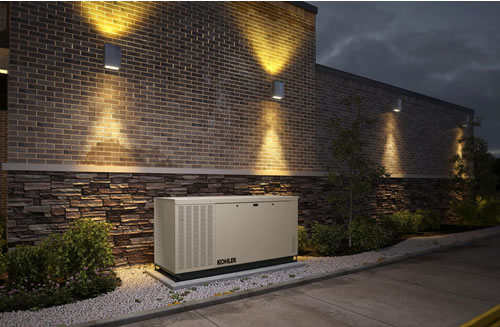Pros And Cons of Commercial Generators
March 16, 2024
In the realm of business operations, uninterrupted power supply is crucial for maintaining productivity, ensuring customer satisfaction, and safeguarding essential equipment. Commercial generators offer a reliable solution to mitigate the impact of power outages and keep businesses running smoothly. However, like any investment, commercial generators come with their own set of pros and cons that business owners must consider before making a decision.
Pros of Commercial Generators
- 1. Reliability and Continuous Power Supply: Perhaps the most significant advantage of commercial generators is their ability to provide uninterrupted power supply during outages. Whether caused by inclement weather, utility failures, or other unforeseen circumstances, commercial generators kick in automatically to ensure critical operations remain unaffected, minimizing downtime and potential revenue losses.
- 2. Protection of Equipment and Data: Businesses rely on a wide range of equipment and technology to operate efficiently, from computers and servers to HVAC systems and security cameras. A commercial generator ensures that these essential assets remain powered, preventing damage, data loss, and security breaches that can occur during sudden power outages.
- 3. Enhanced Safety and Security: Power outages can pose safety risks in commercial settings, particularly in industries such as healthcare, manufacturing, and hospitality. With a commercial generator in place, emergency lighting, fire alarm systems, and security systems remain operational, ensuring the safety and security of employees, customers, and assets.
- 4. Business Continuity and Customer Satisfaction: Maintaining business continuity is essential for preserving customer trust and loyalty. By investing in a commercial generator, businesses demonstrate their commitment to reliability and preparedness, reassuring customers that services will remain available even in challenging circumstances.
- 5. Customization and Scalability: Commercial generators come in various sizes and configurations to meet the specific needs of different businesses. Whether powering a small office, a large manufacturing facility, or an entire commercial complex, generators can be customized and scaled accordingly to ensure optimal performance and efficiency.
Cons of Commercial Generators
- 1. Initial Cost and Installation: One of the primary drawbacks of commercial generators is the upfront cost of purchase and installation. High-capacity generators capable of powering large commercial facilities can be a significant investment, requiring careful budgeting and planning. Additionally, installation costs may vary depending on factors such as site preparation, electrical wiring, and permits.
- 2. Maintenance and Fuel Requirements: Like any mechanical system, commercial generators require regular maintenance to ensure optimal performance and reliability. This includes routine inspections, testing, and servicing by qualified electricians or electrical repair services. Moreover, generators rely on fuel sources such as diesel, natural gas, or propane, which incur ongoing operational costs that businesses must budget for accordingly.
- 3. Environmental Impact: While commercial generators provide essential backup power, they also contribute to environmental concerns such as air pollution and carbon emissions. Diesel generators, in particular, are known for their higher emissions compared to other fuel types. Businesses must weigh the environmental impact of operating a generator against the necessity of ensuring uninterrupted power supply.
- 4. Noise and Aesthetic Considerations: Depending on their size and location, commercial generators may generate noise during operation, which can be disruptive in certain environments. Additionally, the presence of a generator may affect the aesthetic appeal of commercial properties, particularly in settings where appearance is a significant consideration.
- 5. Regulatory Compliance and Code Requirements: Installing and operating a commercial generator requires compliance with local regulations, building codes, and safety standards. Businesses must ensure that their generator installations meet all applicable requirements to avoid potential fines, penalties, or liability issues.
Commercial generators offer invaluable benefits for businesses seeking to maintain continuity, protect assets, and ensure operational resilience in the face of power outages. However, it's essential for business owners to carefully weigh the pros and cons before investing in a generator solution. Consulting with qualified electricians at Mr. Electric or home generator installation services can help businesses make informed decisions tailored to their specific needs and circumstances, ensuring optimal performance and reliability in times of need.
